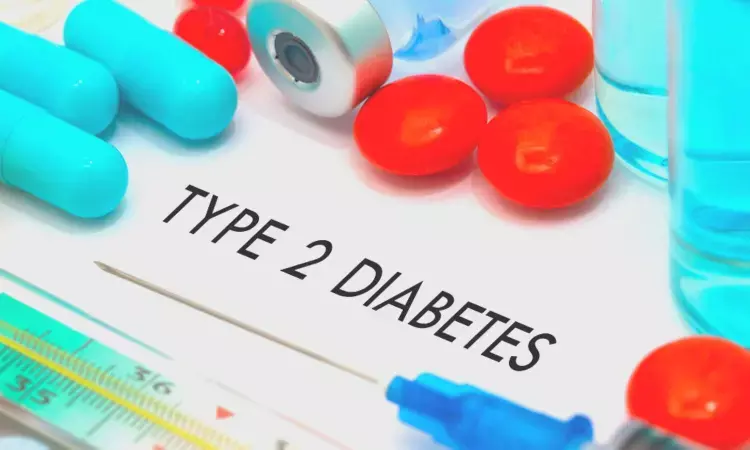- Home
- Medical news & Guidelines
- Anesthesiology
- Cardiology and CTVS
- Critical Care
- Dentistry
- Dermatology
- Diabetes and Endocrinology
- ENT
- Gastroenterology
- Medicine
- Nephrology
- Neurology
- Obstretics-Gynaecology
- Oncology
- Ophthalmology
- Orthopaedics
- Pediatrics-Neonatology
- Psychiatry
- Pulmonology
- Radiology
- Surgery
- Urology
- Laboratory Medicine
- Diet
- Nursing
- Paramedical
- Physiotherapy
- Health news
- Fact Check
- Bone Health Fact Check
- Brain Health Fact Check
- Cancer Related Fact Check
- Child Care Fact Check
- Dental and oral health fact check
- Diabetes and metabolic health fact check
- Diet and Nutrition Fact Check
- Eye and ENT Care Fact Check
- Fitness fact check
- Gut health fact check
- Heart health fact check
- Kidney health fact check
- Medical education fact check
- Men's health fact check
- Respiratory fact check
- Skin and hair care fact check
- Vaccine and Immunization fact check
- Women's health fact check
- AYUSH
- State News
- Andaman and Nicobar Islands
- Andhra Pradesh
- Arunachal Pradesh
- Assam
- Bihar
- Chandigarh
- Chattisgarh
- Dadra and Nagar Haveli
- Daman and Diu
- Delhi
- Goa
- Gujarat
- Haryana
- Himachal Pradesh
- Jammu & Kashmir
- Jharkhand
- Karnataka
- Kerala
- Ladakh
- Lakshadweep
- Madhya Pradesh
- Maharashtra
- Manipur
- Meghalaya
- Mizoram
- Nagaland
- Odisha
- Puducherry
- Punjab
- Rajasthan
- Sikkim
- Tamil Nadu
- Telangana
- Tripura
- Uttar Pradesh
- Uttrakhand
- West Bengal
- Medical Education
- Industry
Loneliness and insomnia increase risk of Diabetes mellitus

A recent study by Roger Henriksen and team found that depression or sleeplessness are mediating the effect of loneliness on type 2 diabetes. Loneliness may be one component that raises the chance of developing the disease. The findings of this study were published in Diabetologia Journal.
The incidence of type 2 diabetes, one of the main causes of mortality worldwide, has drastically climbed during the past 20 years. Loneliness may be a type 2 diabetes risk factor, according to recent research. This 20-year follow-up research looked at the possibility that loneliness raises the incidence of type 2 diabetes. Researchers also looked at whether any correlation between loneliness and type 2 diabetes is mediated by signs of sadness and sleeplessness as both type 2 diabetes and loneliness have been associated with depression and sleep issues.
The Trndelag Health Study (HUNT study), a significant longitudinal health study with a population from central Norway (n=24,024), provided the data. To assess the relationships between loneliness and type 2 diabetes incidence, self-reports of loneliness from the HUNT2 survey, conducted between 1995 and 1997, and data on HbA1c levels from the HUNT4 survey, conducted between 2017 and 2019, were both analyzed. For sex, age, and education adjustments, associations were expressed as ORs with 95% CIs. The significance of depression and sleeplessness as potential mediating variables was further explored in this study.
The key findings of this study were:
1.4.9% of those who took part in the trial went on to acquire type 2 diabetes throughout the 20-year follow-up period.
2.12.6% of the individuals reported feeling lonely to varying degrees.
3.Comparing those who felt the most lonely to those who did not, type 2 diabetes risk was increased by threefold (adjusted OR 2.19; 95% CI 1.16, 4.15).
4.One subtype of sleeplessness, but not depressive symptoms, was a marginally effective mediator of the effect of loneliness on type 2 diabetes.
Reference:
Henriksen, R. E., Nilsen, R. M., & Strandberg, R. B. (2022). Loneliness increases the risk of type 2 diabetes: a 20 year follow-up – results from the HUNT study. In Diabetologia (Vol. 66, Issue 1, pp. 82–92). Springer Science and Business Media LLC. https://doi.org/10.1007/s00125-022-05791-6
Neuroscience Masters graduate
Jacinthlyn Sylvia, a Neuroscience Master's graduate from Chennai has worked extensively in deciphering the neurobiology of cognition and motor control in aging. She also has spread-out exposure to Neurosurgery from her Bachelor’s. She is currently involved in active Neuro-Oncology research. She is an upcoming neuroscientist with a fiery passion for writing. Her news cover at Medical Dialogues feature recent discoveries and updates from the healthcare and biomedical research fields. She can be reached at editorial@medicaldialogues.in
Dr Kamal Kant Kohli-MBBS, DTCD- a chest specialist with more than 30 years of practice and a flair for writing clinical articles, Dr Kamal Kant Kohli joined Medical Dialogues as a Chief Editor of Medical News. Besides writing articles, as an editor, he proofreads and verifies all the medical content published on Medical Dialogues including those coming from journals, studies,medical conferences,guidelines etc. Email: drkohli@medicaldialogues.in. Contact no. 011-43720751


